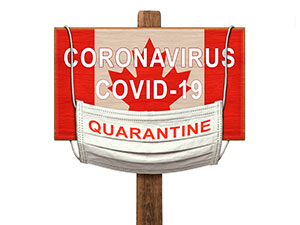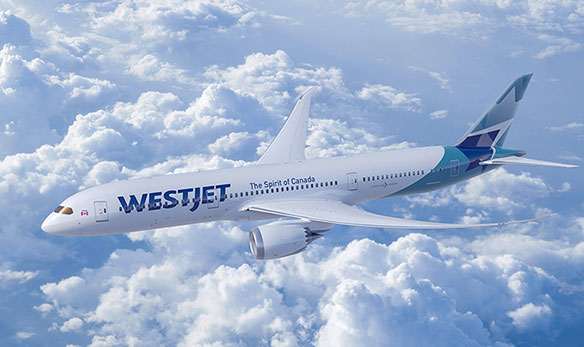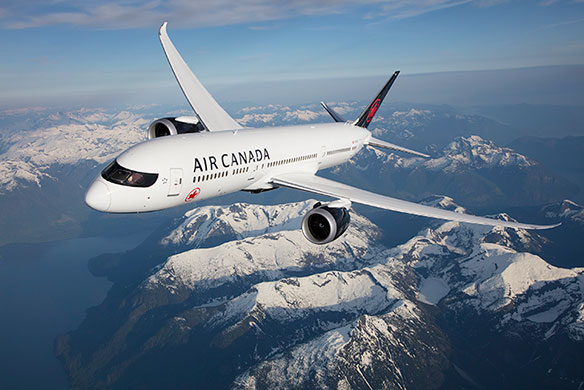
Guided By Science
Airline executives urge government to reconsider quarantine rules
IAN STALKER
Two senior airline officials are questioning the wisdom of having those returning to this country automatically having to self-quarantine for two weeks in case they
contracted coronavirus while abroad, saying the practice is damaging to a struggling airline and travel industry and may not be particularly effective.
John Weatherill, vice-president of network and revenue for WestJet, and Mark Nasr, Air Canada’s vice-president of loyalty and e-commerce, suggested during a Nov. 17 Tourism Industry Association of Canada 2020 Congress discussion that the “blanket quarantine” practice be reconsidered, with Weatherill calling for “science to dictate the approach” the government takes.
The two-week self-quarantine has been cited by many as being hugely damaging to international travel, and Nasr suggested it may also be ineffective, with some reports suggesting that as many of 30% of those told they’ll have to stay in their homes for 14 days failing to do so for at least part of that time.
Their discussion coincided with the release of interim results of a study by the federal government, Air Canada and the Greater Toronto Airports Authority that recently checked thousands of people arriving at Toronto’s Pearson Airport from outside the country for coronavirus and determined that 99% tested negative.
“In addition to demonstrating the feasibility of conducting COVID-19 testing at the airport, the study has also shown the effectiveness of a self-collected COVID-19 sample using a cheek and nasal swab that is completed in minutes,” said Dr. Marek Smieja, co-principal investigator of the study and a professor of pathology and molecular medicine at McMaster University.
 “The pilot phase has demonstrated the feasibility of airport-based testing with self-collected nasal/oral swabs as well as home-based collection during quarantine,” added Dr. Vivek Goel, the other co-principal investigator of the study, and a professor at the University of Toronto and a former CEO of Public Health Ontario.
“The pilot phase has demonstrated the feasibility of airport-based testing with self-collected nasal/oral swabs as well as home-based collection during quarantine,” added Dr. Vivek Goel, the other co-principal investigator of the study, and a professor at the University of Toronto and a former CEO of Public Health Ontario.
Dr. Goel added: “Interim results from the border study support a test and reduced quarantine approach such as that being piloted in Calgary. Testing upon arrival with a follow-up test to catch later positive results could provide a reasonable path forward to help keep borders and the economy open while maintaining public safety.”
The project findings were quickly welcomed by Dr. Jim Chung, Air Canada’s chief medical officer: “These interim results are very encouraging and provide robust data for governments to make science-based policy decisions with respect to safely reopening our country. The updated results strongly suggest that some form of a testing regime can provide a viable alternative to a blanket, 14-day quarantine requirement and also provide a mechanism to reduce travel restrictions more generally.”
Further results from the pilot project are to be released in January.
Weatherill said WestJet is having to contend with a “massive drop in demand … The state of affairs right now is urgent, it is horrific and it is worse in Canada than in other countries for our industry.”
He called for greater cooperation between this country’s different jurisdictions, but added the “ultimate catalyst” for a major restart of travel will be the development of a vaccine against coronavirus.
Weatherill pointed out that the public has to be convinced that travel is safe before travel resumes in a major way and praised the airline industry for the steps it has taken to ensure that people can fly safely.
“We have done everything to make travel as safe as possible,” he declared, noting Theresa Tam, the country’s top health official, has said COVID-19 transmission in airplanes is extremely rare.
However, government statements on coronavirus often discourage travel, he continued.
Nasr noted the airline industry is not the only one in the travel trade suffering from the coronavirus pandemic, recalling how he checked into a Montreal hotel in mid-November that had few guests and only a few employees on shift, compared to the 50 or more who would normally be on duty for clients.
Nasr noted how restaurants in the city’s airport were also closed as the number of airport users was well down.
Canadian Travel Press was a sponsor of the TIAC event.


